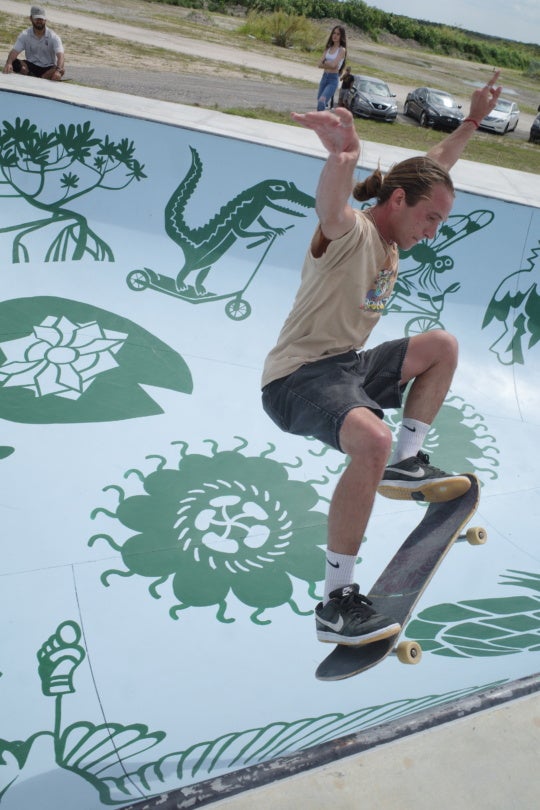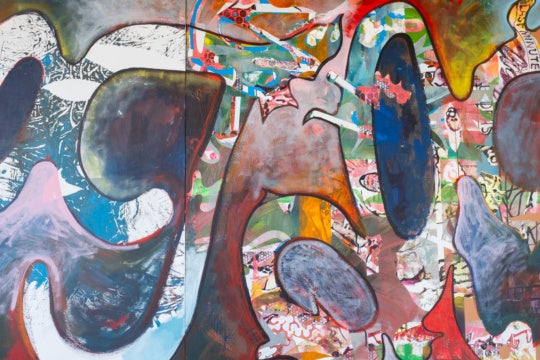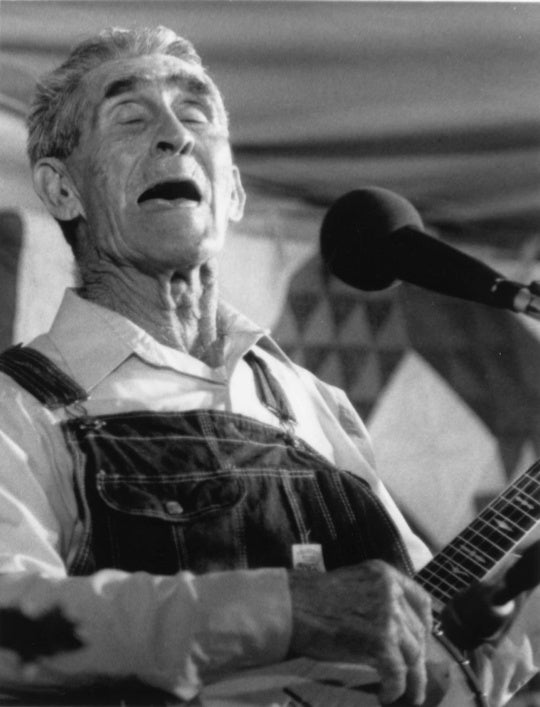
Post Tenebras Lux, like Reygadas’s earlier films, walks a fascinating, provocative line between traditional narrative and dreamlike lyricism. The director often leaves it intriguingly unclear if we’re looking at the past or the future, memory or fantasy, dream or nightmare. You’re bound to leave his films with more questions than answers.
I spoke via Skype with the artist at his home in the small rural town of Morelos, Mexico (one of the primary settings for the new film) to ask a few questions in advance of his Atlanta visit.
Andrew Alexander: What do you have planned for your visit to Atlanta? Is there anything you’re particularly excited to tell audiences here?
Carlos Reygadas: To be honest, I’ve never been to the South, but I really want to see that part of the US that I don’t know at all. I don’t know much about Georgia, but I’ve always liked the countryside wherever I go. I like to see how the farms are organized and how people live there. And of course, talking to an audience is not very usual for me.
AA: I imagine your films don’t necessarily have a typical script. Do you begin with an image? A situation? A character? How does a new film begin for you?
CR: I do actually work with a very precise screenplay, actually like a Hitchcockian screenplay where everything is described. Basically it all comes from experience, from life. For example, this last film, Post Tenebras Lux, I had just finished my previous film; then, I had children and started building my house in the countryside. Of course, a lot of ideas and feelings developed. I tried to put all of those together in a form—that, in this case, certainly seems to be a strange form—but actually it has its own logic. It does make its own sense. Then I just build it up quite rapidly. I write my screenplays in two or three days. But I think about the films for a year or more. There are certain things, particular images—I want to be there, and I try to make a world for them. I write a screenplay that’s shot by shot, not a story. I write shots. I’m trying to visualize it, and then we go out and shoot the film. It’s a materialization process. For me, it’s as if the film already existed the moment I write it.
AA: For Post Tenebras Lux, you even designed a special lens that gave the edge of each shot a dreamlike haze. Could you talk about that? Why was a special lens necessary?
CR: I really wanted something that gave great definition in the center, but I didn’t want to have something that gave full definition all over the place, because that made me think of this kind of digital image we’re looking at now [Skype video call]. These digital images are so defined it’s like the curvy aspect of vision has been completely withdrawn, so I wanted something that would be blurred on the sides. When we were mounting the lens on the camera, we found by accident there would be this double image, like a bevel, at the edge. I just realized that it was a reinterpretation of images. If you want to see how things look really, you can look at them with your own eyes, but if you’re ready to see a film or a painting—or to paint something or film something—you might as well reinterpret those images to make them more relative, to make them convey something different than that which we’re so used to associating them with. This will always remind us that things aren’t necessarily as they seem.
AA: You talk about reinterpreting images, and I imagine that kind of approach also leads to the unusual pacing and story-telling in your films, as well. Sometimes we see something happen, and we’re not sure if it’s a dream, if it’s the past or present—perhaps it’s the future or even an imagined future. It’s all a very different sort of filmmaking, even from other sorts of art-house films audiences might be used to.
CR: For me, the source of inspiration to make a film is life, rather than other films. I don’t think films should be made in any one particular way. In many ways, films can be done like books or paintings or music. But film, being an industry, has to be done one particular way. Very often, the way we experience life, we really don’t know what’s going on in the present tense. And it doesn’t always make sense in the future either. If you walk out of your house and you see a corpse in the middle of the countryside, you just see a corpse. You don’t where it comes from, why it’s there, who this man was. Then maybe you talk to your neighbors, there’s something in the newspapers, and eventually everything makes sense. Or maybe it doesn’t. But in cinema and television, we want things to be explained immediately and for everything to make sense. But in reality, I think life is much closer to the way I make films than to what most films are like.

AA: Are you bored by conventional films?
CR: I have to say that, to a large extent, yes. Some conventional films can be so deep at the level of capturing beautiful moments or the harmony of particular things. Even though they’re conventional there can still be a lot of power in them, and that’s fine. But very often, this process of normalization or reducing everything to a minimum common denominator…in the end it’s boring. For many people, it’s just entertainment, but each of us wants to be entertained in his own way.
AA: You’ve spoken in interviews before about your fascination with the Russian filmmaker Andrei Tarkovsky. Do you remember the first time you saw his films and can you describe their impact on you?
CR: I didn’t see many films when I was a child, and I didn’t see television. Not particularly because my parents weren’t very keen on it, but just because the TV broke down and they didn’t care much about TV, so there wasn’t any television in the house. When I was about 15 or 16, my father probably felt bad about that so he bought a television with a VCR and lot of classic films. About a thousand films. Just by accident one of the first films I saw was a film by Tarkovsky called Nostalgia, and then I saw the rest. I couldn’t believe what I was seeing. I couldn’t believe cinema could be like that. The only films I’d seen were like Superman or Star Wars. With Tarkovsky, I was seeing something made from reality itself, reality was transformed into a form of beauty, conveying so much feeling. I realized cinema could be as strong as music. It could even go further. You would be seeing real people doing real things, but all could be transfigured by the act of artistic creation. Since that moment, I decided I would like to make films.
AA: Were your parents artists?
CR: No. My mother is an anthropologist and psychologist, and my father is a public accountant. But my grandfather and many people in my father’s family were architects, and they all liked to paint, so I have always have been close to painting. And my father loves music. Since I was little I always listened to a lot of music.
AA: I was interested to read that your background isn’t actually in film. You trained to be a lawyer in the realm of armed conflict resolution. Did you ever resolve any armed conflicts?
CR: I didn’t resolve an armed conflict, but I did specialize in armed conflict law. I was involved in the first criminal trial of the war criminals in former Yugoslavia, like checking dossiers and files, forming legal opinions on those subjects. And I also worked for the Mexican Foreign Ministry while the international criminal court was being established at the UN in New York.
AA: How and why did you finally make the switch to filmmaking?
CR: I really liked the job I did, but I didn’t like the lifestyle if you know what I mean. I wanted to have a different life, but I didn’t know how I could do that. But, then I thought that I had watched films since I was 15, and I paid a lot of attention to the way films are made. Every time I would watch a film with someone it was annoying for them because I would always be pressing on the control going back and forth, seeing how things were made. I was just naturally keen to know. To be honest, film was the pretext, or the way I could change my life. That’s what really mattered to me. I started doing short films in Belgium where I was living at the time. I did four short films in less than a year. I did them all with a group of friends. With those same people, none of them had any experience in feature film, they were all students, they came to Mexico and they helped me make Japón without being paid or anything like that. Then I thought I could probably continue making films and I learned how to finance them, and this is the way I continued.
AA: Is Mexico a good place to make films?
CR: Nowhere in the world is an easy place to be a filmmaker. It’s hard, but I have to say that we’re pretty lucky in Mexico. There are funds, there’s a lot of subject matter, it’s not difficult to deal with authorities, and they’re supportive. It can always be better, but it’s better than average.
AA: Your visit to the High coincides with a major exhibition of the work of Frida Kahlo and Diego Rivera. As an artist originally from Mexico City, do you feel a strong relationship to their lives and work? Do you think of them as influences?
CR: Well, I don’t think there’s any particular influence from them but I do feel particular places in the world influence people in those places very much. And this is the case of a place like Mexico City, or even Mexico, in the countryside. In certain people, it really plays a strong role and there are a lot of similarities around the way we perceive those things; so the way they come out can appear as though artists are influencing each other, but it’s more the same place influencing the people. I have to tell you I love Diego’s painting. I think he’s a magnificent painter. I like Frida’s too, but there is just something in Diego’s work that is so precise and so insightful. Rationally insightful, but emotionally insightful, too. Frida’s work is more brutal in a way. But I like them both very much.
Carlos Reygadas’s Post Tenebras Lux screens at the High Museum on Saturday, April 27, at 8 p.m. followed by discussion and Q&A with the filmmaker. In addition, the High screens his short film Este es mi reino (This is my kingdom) as part of the anthology of ten short films Revolución (Revolution) on Saturday, April 20, 8 p.m.




